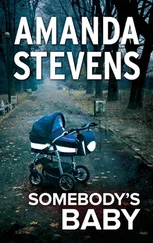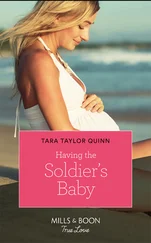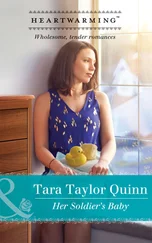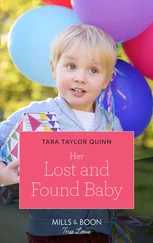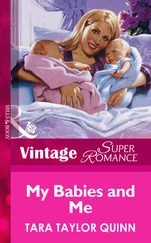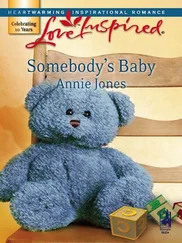She’d never been out with a man with slip-on casual leather shoes.
At least in Phoenix, with all the Old West cowboy overtones, she didn’t feel so out of place in her boots. And her blue jeans, faded flower blouse and brown cardigan were clean.
He glanced over. “Would you like to wait until after dinner to talk?”
The drive had been spent on a horticulture lesson about desert cacti and other flowering plants—much more information than she’d already learned from the Internet.
“No, this is fine.” Anything not to prolong the evening.
Nodding, he set down his spoon. “It occurred to me that I need to tell you some things about myself so you can understand what I have to say.”
Caroline took a bite of lettuce and cucumber. The baby that had yet to make itself physically known in any way other than through a little queasiness and two solid lines on a home pregnancy test, needed sustenance.
There were quite a few patrons in the restaurant, which, she’d been glad to note, had a varied but not too expensive menu. And the booths were far enough apart, private enough with pillars and high backs between them, to allow for intimate conversation.
Still, she would’ve been more comfortable in a fast-food hamburger joint.
“Other than determining that we were both unattached in December—and because of that, lonely going into the holidays—we never broached any information about our romantic lives.”
Glancing up at him, Caroline nodded, uncomfortable with the direction he seemed to be taking. His dark eyes were open and sincere.
Would her baby’s eyes be that brown? Jesse had green eyes like hers.
“I’m a widower.”
“Oh.” And when surprise didn’t seem an appropriate response, she said, “I’m sorry.” She paused, then added, “So am I. A widow, I mean.” Her fork hung suspended in midair, clasped in fingers that were holding it so tightly the metal was leaving indentations in her skin.
Her widowhood certainly wasn’t a secret. She just felt so vulnerable, talking about it.
Forearms resting on the table, he toyed with his fork. “How long’s it been for you?”
“Six months.” And she hadn’t slept more than a couple of hours at a time since.
“Six years here.”
She wanted to ask him if it got any easier, but couldn’t get that intimate.
“Sometimes it feels like it’s only been six months,” he continued, staring down at the fork he still fingered.
The man’s lost look drew Caroline’s sympathy. “What happened?”
He raised his head and then lowered it again. “Car accident.”
“Was she alone?” Randy had been. And visions of him lying there hurt, frightened, needing her, haunted her daily.
He shook his head, dark brown hair falling over his forehead as his gaze met hers. “We were in a cab in New York, coming from a Broadway show.”
Oh, God. She’d never been to New York. Or to a play, for that matter, if you didn’t include the elementary-school variety. But she could imagine being on vacation, having fun, completely unsuspecting of the tragedy that would occur.
“She lived for a couple of hours,” he continued. The food was taking too long to get there. Caroline wanted the interruption more for him than for herself.
“I begged her to hold on. All the time we were in the ambulance, trying to maneuver through Manhattan traffic, I pleaded with her to breathe.”
Caroline had a feeling the woman would have done everything in her power to honor this man’s request.
“What was her name?”
“Meredith.” His eyes grew vacant, and Caroline had a pretty good idea he’d fallen into what she’d come to know as the dark abyss. A place where lost lives and broken dreams waited to taunt those left behind.
“My husband’s name was Randy.”
He blinked, an expression of compassion and understanding replacing the emptiness. “Was he sick?”
She shook her head. Not unless you counted a lack of self-esteem and the resultant relationship with a bottle. “Tractor accident on our farm.”
“How old was he?”
“Same as me. Thirty-four.”
“Meredith was thirty-one. We were planning to have kids,” he said, more to himself than to her. “She was an investment broker and wanted to build a clientele so she could work from home and be able to stay with the babies.”
An investment broker. And Caroline had never finished high school.
“You sure don’t expect to lose a spouse in your early thirties.” The words sounded inane to her, but she didn’t know what else to say.
“Here we go, folks. Sorry this took so long.” The young man who’d taken their order appeared at their booth, carrying two plates of salmon and steamed vegetables. Caroline sat back, napkin on her lap as he placed the food before her. Other than that night in Frankfort, she’d never eaten anywhere fancier than the diner in Grainville. And was scared to death that she’d forget some of the rules of etiquette she’d learned on the Internet so she could educate her son. There wasn’t a lot of opportunity for practice with proper forks and bread plates on a farm like hers. She and Randy had never even owned a set of matching silverware.
She was, however, thankful to have had the interruption before John could ask the next obvious question—about her and Randy’s plans for a family. She had a feeling John assumed she had no family, since she’d told him, in December, that she lived alone.
And to have a child old enough to leave home, she’d’ve had to be pregnant at sixteen.
John was quiet while he ate, other than to inquire politely about the suitability of her food. And to make sure she had everything she needed. Caroline felt relieved; not only was she spared the worry of where conversation might lead, but the food was so much more luxurious than anything she’d ever tasted before that she was completely engrossed in enjoying it.
She looked longingly at the desert menu as it was presented, but declined. She was stuffed.
“Shall we go?” He laid a couple of twenties on the table and stood, then gestured for her to pass in front of him. And suddenly, Caroline wanted to stay. At least in the restaurant there were other people around, the possibility of interruption.
BACK IN THE CAR she waited for him to say whatever he’d taken her to dinner to say. Obviously something about the baby. And she steeled herself to listen with an open mind. The child growing in her body was half his. It was a point she couldn’t argue.
“This is a lovely car,” she ventured when it appeared that they might be making the hour-long trip back to Shelter Valley in complete silence.
“Thanks.”
“What kind is it?”
“A Cadillac.”
That would explain why she’d never been in anything like it. The plush leather seats were contoured and adjustable in a variety of ways. And she didn’t even try to decipher what all the buttons and lights and controls on the dash were for. But if she wasn’t mistaken, that screen above the radio was one of those computerized map things she’d read about on a pop-up on the Internet last winter.
If she wasn’t so afraid of looking like a fool, she might’ve asked him about it.
He kept up his end of the conversation after that, mostly telling her about life in Arizona. He talked about the summer heat. And the wildlife. Scorpions and black widow spiders. She didn’t need to be afraid of scorpions, he said. While they were ugly, only the really small kind was lethal enough to make you sick—and then, only if you were already vulnerable. With all the others, their sting hurt and could cause temporary numbness in the affected limb, but there was no lasting damage.
“Don’t worry,” she assured him, with a slight smile in the darkness. “You can’t live on a farm and be afraid of spiders. I learned to use a fly swatter long before I learned to read and write.”
Читать дальше



